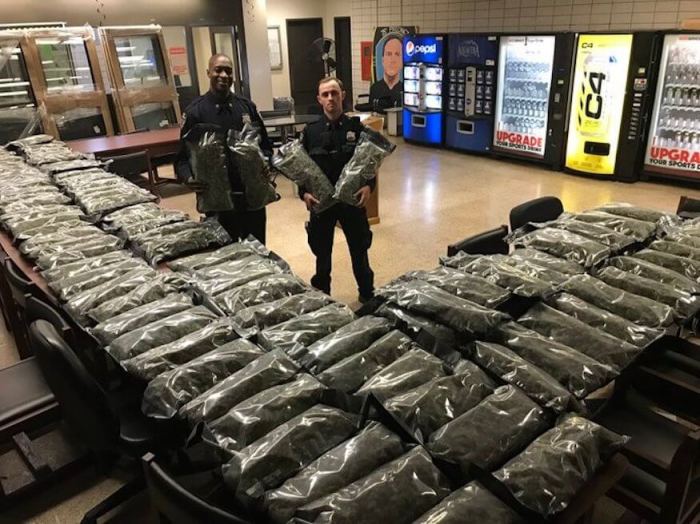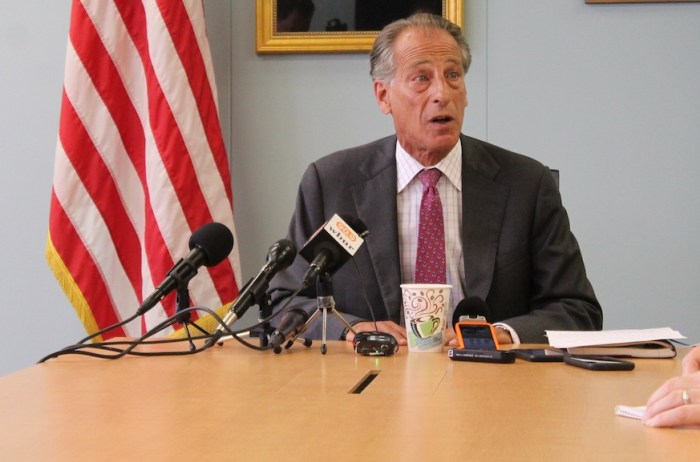For filmmaker Paul Thomas Anderson’s latest trick, he’s taken on a literary titan long thought impossible to adapt for film — or for a single film, at least. But Anderson had been such a fan of Thomas Pynchon for so long that he says he couldn’t not do the film version of “Inherent Vice,” Pynchon’s 2009 novel ostensibly about a stoner private detective (Joaquin Phoenix) working a case in 1970 Los Angeles. And since he’s presumably spent some time with the notoriously reclusive author, we asked Anderson to draw us a picture of Pynchon. The results are pretty entertaining. I know it’s impossible to really know, but is Pynchon in the movie? There was rumor of a cameo. Well, could you draw me a picture of him? Adapting Pynchon for the screen is a pretty daunting task. At what point did you first think, “I should do this”? Did you have to talk your wife, Maya Rudolph, into letting you score one of her scenes with a song by her mom, Minnie Riperton? If you take your films chronologically by when they’re set, it tells an interesting story of the development of the L.A. area. Do you ever think of your films in that way, as a whole body of work with overarching themes? Follow Ned Ehrbar on Twitter: @nedrick
Can you put a dollar amount on how many tickets might be sold to Pynchon freaks who have to see? Chances are they could come back 50 times, buying a ticket each time, and that, you know, that’s a lot of money that we can’t just throw out the window, so we have to keep … (laughs) He’s absolutely in there somewhere! You just have to keep coming back to find it! I wish you all luck.
There you go. (laughs)
It was two things at once. It was, “I don’t know how to do this and I can’t do this, but no one else is going to be allowed to do this but me.” I love and have loved his work for a long time. I flirted with trying to do “Vineland,” I certainly thought for a second “Mason and Dixon” could be done — and maybe someday still will. But this presented itself as doable, as a great lead character weaving through many other great characters. And I loved how many girls there were in it, too. There’s so many great parts for girls, and getting your hero to interact with all of them — and most of them are half-clothed. That just seemed so appealing. I was like, “OK, there’s enough,” but all the while convincing myself that I shouldn’t do it, that I shouldn’t make another L.A. movie, that I don’t need to do this again, but as you’re typing, it’s kind of like a drug addict who’s just like, “I really can’t have another drink” while reaching for his glass. It was too hard to resist.
No way! Why should I talk her into it? I thought we should pay extra, actually. I knew Warner Bros. was paying and I knew ultimately that check goes to her dad, who wrote the song. I thought hopefully it could filter back to my kids somehow, maybe. But I couldn’t really do that. (laughs) It’s a lovely moment. It makes me kind of sentimental and teary to see her on screen and hear her mom singing. I came up with that idea at 2 o’clock in the morning, one of the very few nights we were working late in the editing studio. I remember coming home and being so excited about it and waking her up to tell her about it and her going, “Go back to f—ing sleep.” (laughs)
Sure, sure, for sure. But really not for design. That’s just kind of the way things have fallen. I don’t know, there’s two kinds of people: There’s people who sit through the credits in movies and there’s people that leave. And there’s people that buy those books about history and people that don’t. I’m one of those people that buys those books about neighborhoods where you can see, “Here’s the picture of it in 1920 and here’s the picture of it today.” I’m the demographic for those books. I’m the hard-core aficionado who’s buying those books, and I don’t know what it is. I can’t stop. (laughs)
Only in interviews, I do. Like now. But it’s funny, things come out in the wash. Like on “The Master,” the preoccupation was, “You make films about fathers and sons,” and I was like, “I do? F—, I guess I do. OK, sure.” I’m just so happy that I’m not hearing, “You make movies about fathers and sons” anymore. (laughs) But that’s a moveable thing, you know? I never thought I’d be making a detective movie, ever. This was a way to make a Thomas Pynchon movie, and his concerns are my concerns, whether I got them from him because of his writing or whether I had them to begin with and that’s why his voice speaks to me so much, but I’d like to steal from his kind of preoccupation with this country, this world, where it’s at, where it’s going. Republicans in power, land grabs, abuses of power. You know, all this kind of stuff that I love. That stuff gets me going. It brings out a fight in me that makes me feel good, that makes me feel righteous, I think, in a good way. And I get it from his work, from his writing. He sees the absurdity in it all, but it’s not just absurd. He’s pretty pissed off about it, too.

















